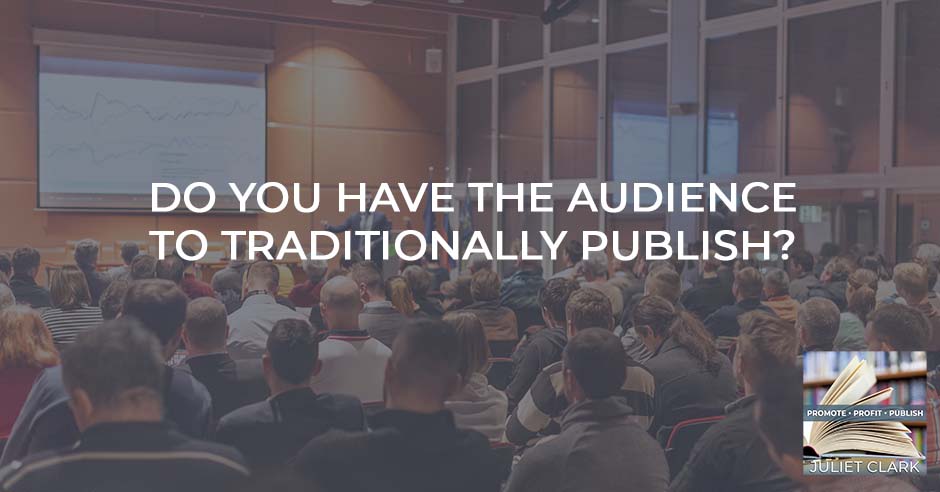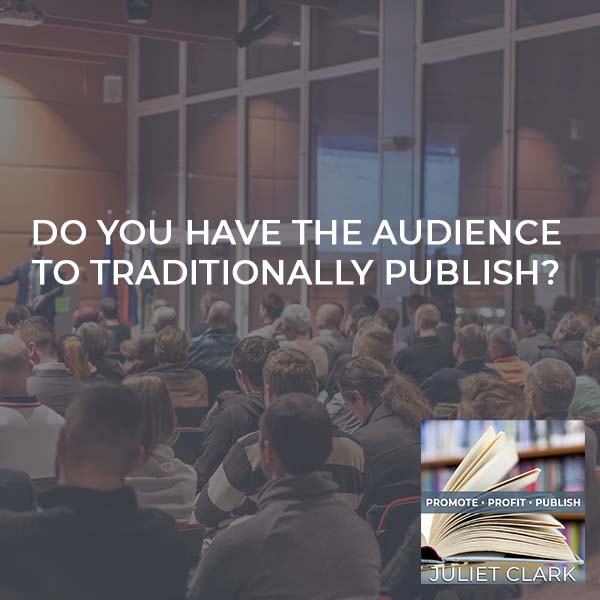
Are you thinking about traditionally publishing your book? Then, this is an episode you don’t want to miss. Randy Peyser is a Book Broker and the CEO of AuthorOneStop.com. She edits and ghostwrites books and helps first-time authors get book deals with New York literary agents and publishers. Randy joins Juliet Clark to break down what it takes to have your book with a traditional publisher. The keyword is audience. Find out more by tuning in.
—
Watch the episode here
Listen to the podcast here
Do You Have The Audience To Traditionally Publish? With Randy Peyser
We have a returning guest that we haven’t had in a while. She’s one of our most popular downloads. Hopefully, we are going to get a lot of information about what’s going on in the traditional publishing world. Before we go there, I want to remind you to go over and subscribe to our magazine. It’s free. Get tips, tricks and meet some authors that have had some great success out there. You can find that over at www.BreakThroughAuthorMagazine.com. While you’re at it, take that quiz. It’s right after the thank you page. Find out what you know about everything you need to know to publish successfully.
Our guest is Randy Peyser. She is a book broker and the CEO of AuthorOneStop.com. She edits, ghostwrites books and helps first-time authors get booked deals with New York literary agents and publishers. A sample of client successes includes The Tao of Influence on The Wall Street Journal Bestseller List for five weeks, Words Whispered In Water, a top pick by Publishers Weekly, Power Your Profits, a top pick by Cosmo and this person received a six-figure advance, a memoir that was an option for a Hollywood film.
Other past successes include Nice Girls DO Get The Sale featured in Time Magazine, Hired! in FedEx bookstores nationally, Pivot, a six-figure advance sold in Simon & Schuster on The Wall Street Journal and USA Today Bestseller List. Pivot and Adrenaline Nation were also in airport bookstores. Finding The Wow in Oprah Magazine. On Hallmark TV, Randy is the author of Crappy To Happy, as featured in the movie Eat Pray Love, The Power Of Miracle Thinking and Write-A-Book Program.
Randy is going to talk to us about what’s going on in the traditional publishing world and how to get that contract because there seems to be a lot of confusion about, “Do I need to build the platform?” What do you need for book submission? What should be in those contracts? We’re going to have a big discussion about contracts and some of the crap we’ve seen in the marketplace. Hang on. Here’s Randy.
—
We have Randy with us. Welcome.
Thank you, Juliet. I’m happy to be here.
I am so excited to talk about this because you and I had a discussion unexpectedly. There seems to be a lot of confusion about how to get a traditional contract, what’s going on, and what people are signing in self-publishing contracts, which I want to talk about that’s blowing me away. Tell us a little bit about what’s going on in the marketplace with traditional publishers? What is it that you need? There’s this ongoing back and forth between, “The whole book needs to be written. I need a platform, proposal and one chapter.” Nobody knows.
Engagement is really important wherever you’re going to position yourself. Share on XI do know. I’m very happy to share. In this COVID pandemic time, I still get lots of people book deals. For example, I was pitching a non-fiction manuscript to ten publishers. On the same day, two publishers got back to me saying, “Yes, I’m considering.” The next day a third publisher says, “Yes, I’m considering.” Within a week, a fourth publisher passed on it. A fifth publisher came in and it’s less than a week, saying, “I want to set up a meeting with the author.”
These are first-time authors. You can’t tell me that book deals aren’t happening because I make them happen consistently. I sold a memoir. I got a $30,000 advance. I placed it with the right agent who did that. Memoir can be a difficult category but don’t be persuaded by any negativity you’re hearing out there because there are plenty of manuscripts that are being published and I’m one of the people that helps get them there.
You ask a lot of questions. I tell people there are two parts to getting a book deal with a traditional publisher. There are two parts to the conversation. The first part is about your content. They have to love your content, feel there’s a strong enough market for it and critically, you have to be differentiated. That means you’re not spitting out quotes from other authors.
You’re not recycling their quotes or referencing them in your books. As much as possible, they want to know new thoughts. What are you bringing to the conversation that’s new vital information that you have that you could bring forth in your unique way of expressing it? That’s important. That’s the first part. Do you have a unique differentiation? The second part of the conversation is purely a business-sided conversation.
From the business side of publishing, you must meet certain metrics and numbers. For example, I’m on a Zoom call and pitching this one acquisitions editor. These are the people who acquire the projects. I’m pitching her nine projects and because we’re on Zoom, I can watch her. She has a big side monitor. I would present one project to her verbally. She has it in writing as well. I’ve sent the appropriate materials, but I’m pitching verbally at this point.
I see her on the side monitor and she’s looking up to the people. She goes, “Facebook, not enough engagement.” I’ve seen this with so many agents. I was sitting with Angelina Jolie’s literary agent in pre-COVID, pitching him at a Starbucks table at the Javits Conference Center during one of the big publishing industries, feeding frenzies giant book expo in New York.
He pulled out his phone while I was pitching him. I saw him looking down, not looking at me while I was speaking. In my mind, I’m thinking, “That’s rude. I’m busy judging the guy.” He was looking at my author there on YouTube and said, “No. Numbers are way too small.” End of the conversation. Engagement is important wherever you’re going to position yourself. You got a podcast to grow those downloads like crazy.

Traditional Publishing: There are two parts to the conversation. The first part is about your content. The second part is you must meet certain numbers.
I also want to share with you where your numbers need to be. I’m going to share this by example. I had a book that came out in February 2021 called The Prepared Investor. I was pitching it back in 2019. The author had two LinkedIn profiles. It is pre-COVID. I’m in New York, pitching wide 25 meetings in 2.5 days. That’s a lot of meetings. I had 22 meetings with publishers and 3 with top literary agents pitching 16 projects. This is my fun. This is my playground. I’m in my lane.
I pitched this book to 3 top literary agents. Two of them have done six-figure deals for my clients, but they are all strong and 2 of them have also done movie deals. They are a very strong agent. Those were all separate meetings and I heard the same words come out of those agents’ mounts when I was pitching Chris Manske’s The Prepared Investor. Fortunately, I did sell the book.
Chris had two LinkedIn profiles and his demographic is LinkedIn. He’s dealing with professionals. You have to know where is your demographic. Where are they online? Create a goal. Are your people on TikTok or Instagram? Where are they, wherever they are? If they’re a business book in the professional world, you better be on LinkedIn. Here I am pitching his book. I tell these agents that he has 2 LinkedIn profiles, 10,000 people on his business profile on LinkedIn and 1,000 people on his profile. Those three agents’ in separate meetings all said the same sentences.
They said, “Delete 1,000. Those numbers are too small.” None of them would touch it. I eventually did sell the book based on his 10,000. I tell people, “That’s a minimum number, 10,000 followers.” The more you can show people engaging, that’s how you get book deals with traditional publishers. It’s critical to the sale. If you don’t have to have it, you have to be strong somewhere. Let me tell you the number of books that publishers want to buy.
They want to sell each year. This will give you an idea of where your numbers need to be. For example, a mid-range publisher wants to sell 3,500 to 5,000 books in the first year. Where do your numbers have to be for them to justify taking your book? The higher you can get your numbers, the better. 3,500 to 5,000 is a mid-range publisher. Simon & Schuster and Penguin Random House want to sell 10,000 books in their first year. Where do your numbers need to be to justify them offering you a contract?
This is why engagement is so important. Someone who started as an author at the same time I did had developed a list strategy. She always had about 25,000 people on her list. If you didn’t engage with those emails within 30 days, you were deleted. Every time she made USA Today, The Wall Street Journal and eventually became a New York Times Bestseller, she had a list of 25,000 people engaged. They were opening and buying. It would be a little bit harder to show to a traditional publisher, but those are the kinds of things why engagement’s important because you can have 25,000 crappy followers who don’t do anything, but that’s not going to propel book sales.
I want to give you some strategies of one of the few workarounds that I know because I did this for some authors and about 20,000 people on their list, which is good for a mid-range publisher. They did something unique that everyone can do, even if you don’t have 20,000 people. They did a GoFundMe. This was an author and an artist of an oracle deck. They pre-sold 450 decks. They’re from an indigenous tribe in Canada that’s never been represented in print. It’s a unique differentiation. Whatever your project is, oracle deck or not, do you have that unique differentiation? I figured, “I want to take this project to Hay House.”
You could write the best book in the world, but if nobody’s going to touch it, oh well. Share on XHay House is the largest mind-body-spirit publisher in the world that I know of. I’ve sat in the office of the VP publisher in New York so I also know what she looks for. Every mind, body and spirit author will come to me saying, “Can you get me Hay House?” Let me tell you what Hay House wants because I know their exact numbers.
They are VP publishers in New York. I’m sitting in her office pre-COVID. She told me, “We look for authors who have a mailing list of 100,000.” We examined the open rate on that email, which is exactly what you were saying. It’s not just about having followers. Why is the mailing list critical to them? It’s because they say, “Your mailing list is the only thing you have control over that is not ruled by an algorithm.” It’s critical.
My author and her artist from this indigenous tribe in Canada for this oracle book didn’t have 100,000. They still have a good size list of 20,000 but had pre-sold 450 decks. Besides this little joke, I say to myself, “Hay House? I’m going to pitch it.” The most they can do is say no, but this is what happened. I pitched that project with the book proposal, which I had polished, to the VP publisher in New York at 9:00 AM on a Thursday. Everything was ready to go. At 9:20 AM, I got an email back saying, “This project looks stunning. Let me do a deeper dive into the proposal. I will get back to you.” On Friday morning, there’s a message waiting for me in my inbox from her acquisitions editor saying, “I want to meet with the artist and the author on Monday.” We had that meeting on Monday.
They didn’t have 100,000 followers or on an email list, but I was still able to get that door open. Hay House did pass on the project, but we were relieved because Hay House has years of the production cycle. They did sell the project very quickly elsewhere. It’s coming out in June of 2022. It’s very different. The artists and the author are aside, but it’s something that people would appreciate knowing because of the supply chain issues. The publisher that I sold it to wanted to get it out in time for Earth Day in April 2022, except because of the supply chain issues around the paper. It’s an oracle deck and color printing, so they couldn’t do it. With fingers crossed, they’re holding for June 2022 release date.
I do want to mention something here because we hear this all the time with self-publishing. They say, “We’re thinking about going with Balboa because it’s part of Hay House.” It’s not the same thing at all. Don’t get sucked into that. “I put self-published with Balboa, so Hay House will look at my book.” It’s not going to happen. I always cringe when I hear that because it’s not the way it works with it. Let’s jump into proposals. Within two days, I had someone who we’ve signed. There are a lot of book developers out there. A lot of people say that they are book developers and they know how to get your book consumed by an agent.
The first one that came in, we’ve taken on her book, but she wrote the entire book, spending an enormous amount of money. The proposal is beautiful, but by the time the book was done, the market was saturated with women’s stories. On some level, if this had been something that had been pitched years ago when she started, the market wouldn’t have been saturated.
The next day I talked to someone who has a good chance of getting a traditional publishing contract because she does have and found something unique, but her guy was telling her that she needed to go back and rewrite the book differently, which didn’t make any sense to us because she’s a history buff. It was chronologically written, which makes sense. Hers was already written, but he didn’t want to write that proposal yet because he didn’t like the way the book was written. Where’s the balance here and at that point where you send that proposal off to someone?

Traditional Publishing: It’s not just about having followers now. Your mailing list is the only thing you have control over that is not ruled by an algorithm.
I wrote a book proposal that got a $125,000 book deal in a bidding war between nine publishers and Simon & Schuster took the book. I am a master of proposal. There are many different ways to write proposals, but the way that I do it, frankly, allows me to sell a lot of books. I primarily work with first-time authors. I’ll share with you the process that we do. We’ve also ghostwritten books that have gotten six-figure deals, but let’s say somebody wrote their manuscripts. The first thing we do is provide a bid, read it and analyze it, use the comments bar in word, and point out anything that the author needs to strengthen that we see.
In that first round, we’re also discerning, “Is this a book we think a publisher is going to buy?” It used to write a strong proposal and submit with sample chapters. Back in January of 2020 or 2021, I had an agent tell me that publishers want to see at least 50% of a manuscript because it’s harder to get a book deal. In most cases, it is my preference to pitch when the manuscript is completely edited, polished, and ready to go. Why? It’s because the competition is high. Let’s say a publisher has 25 spaces for that quarter or that half-year, depending. I’m making up several random 25 spaces, but they have 70 books that they’re considering.
Let’s say 50 of those books are ready to go. Do you have a chance to compare all these other people when their books are ready to go? I have a team of editors and ghostwriters who work for me. My criteria are so high. They had to work directly for the traditional publishers where I’ve edited many books that have sold to traditional publishers. We’re meeting publishing industry standards with the editing, but we also have a very good understanding of what publishers are going to buy.
She could write the best book in the world, but what if nobody’s going to touch it? For example, in 2021, the book was pitched on sample chapters with one of my authors, and he got a $30,000 book deal. He was one of the founders of anime. The man has a huge track record and following. He is loved everywhere in that industry. I barely know what anime is.
I found the agent who secured the publisher where the acquisitions editor loves anime. That’s her favorite thing. It’s perfect. That $30,000 advance that this gentleman got pre-COVID would have probably been easily a six-figure deal, but in COVID times, advances are coming way down. Where I’d like to bring the conversation next is that I like self and traditional publishing for different reasons. Before we even get into the proposal, I’d like to share the difference. I’ve done both with my books with different books I’ve written. I always tell people, “I’m not attached as to which way you want to go. I just want what’s highest and best for you depending on your goals.” I very briefly can share about that.
When I was writing Pitchslapped, we talked a little bit about you and thought you could get a deal. I thought it was in my highest and best to stay with self-publishing and also set an example. It’s awful. We’re a hybrid company, but what if I’m telling people, “I self-published, but I went the traditional route?” I love that you’re going to address this because that was one of my considerations.
Generally speaking, I’m qualifying it like that. If you want to make more money per book, self-publish. If you want to get a book out quickly, self-publish. If you want control over every aspect of your book, your cover design, interior texts and everything, self-publish. If you are using your book for your career, I highly recommend traditional publishing. The doors that can open for you are amazing. My first-time authors in Oprah Magazine, Time Magazine and FedEx Office stores across the country, their books sold in bulk. Also, airport bookstores first-time authors. If you’re looking to grow your career, get on corporate stages or into larger venues, speaking, media and things like that, I tell people to try through a traditional publisher.
If you want more money per book, self-publish. If you want to get a book out quickly, self-publish. If you want control over every aspect of your book, self-publish. If you are using books for your career, I recommend traditional publishing. Share on XFor example, my old first book is Crappy To Happy. I’m sitting in a movie theater and there’s Julia Roberts all of a sudden holding up my book in a bookstore scene. I had no idea it was going to be in a movie. I’m just sitting in the movie opening night of Eat Pray Love. There she is. I’m blown away. It’s things you can’t even begin to predict. My authors are on various Wall Street Journal Best-Sellers and things like that. I had a book on 2021 Cosmo calling Number 17 Best Non-Fiction Book 2020. Those opportunities typically happen when the book comes out through a traditional publisher.
That’s interesting, too, because most of what we handle are entrepreneurs who use that book as a nurturing space. When you talk about a career, you’re talking about someone who maybe is in Corporate America or going that route. Ours is more of those entrepreneurs. You read Hay House with years of production. Will your book still be around? We had someone who hired us who said, “I’d love to go traditional, but I’m 64 years old. I don’t even know that I’ll be here in two years.” It was hard, but if you think about it, “Let’s maximize some of those considerations.” You pretty much outlined that proposal pretty well about, “Do you want to do a proposal? What does that weight look like? What is all that? Who’s pitching it?” Pitching it yourself probably isn’t going to get you much traction.
I’m a master of the pitch. I love to do it. This is my fund. It’s my playground and lane. I have a book coming out in October of 2022 on skincare and the oracle deck. I pitched that manuscript on emotions with 10 to 10 publishers already in a conversation with the author. I love to get people to book deals. The way I pitch is via email and I forward all correspondence so that everyone knows, “Who’s considering the project?” Any feedback we’re getting, they’re always in the loop and we see where it’s at. For example, business books are typically the easiest books for me to sell.
It’s often the case that I get more than one publisher interested. For example, Power Your Profits is one book. First, McGraw Hill came in and offered an advance slightly under $20,000. Simon & Schuster came in going, “Bidding war.” I sent an email to one of the top agents I deal with. I didn’t write an email. I just wrote a subject line, “Linda, can you conduct this bidding war?” The next thing you know, we have nine publishers involved and a $125,000 book deal. I have a book off on the side here to me called Great Mondays. That’s a book on company culture. McGraw Hill did publish that book, but publishers offer deals on that book.
Years ago, I was pitching 8 projects in 1 month. Both proposals are ready to go. It happened in different non-profits. I pitch a lot of business, mind, body, spirit, self-help, personal growth, those categories and some memoir. I have 3 fiction, 2 thrillers and 1 women’s fiction under contract with different agents. A couple of those agents also sell to film and there is a wide range of books.
In four months, 7 out 8 of them were offered book deals and the 8th acquisition is what the editor loved. When she brought it to her team, the team said, “This is too advertorial and self-promotional. When the author rewrites, we will reconsider.” It’s 7 out 8 right off the bat that we got book deals. That’s incredible.
Soul Memories, her group wrote this book and ghostwrote it for our client, Bonnie Darby. It’s a beautifully written book. I can vouch for those ghostwriting skills as well. Let’s shift over to what I’m seeing as contracts in the self-publishing world because I have seen the craziest contracts. We always offer that if you have a competitor’s contract, we’re happy to look at it and explain what you’re seeing because we find that so many of these companies hand it to them and say, “This is standard. They don’t explain.” Authors aren’t aware of what they’re getting into. I’ll give you a great example right off the top. We looked at one and this young lady has gotten her rights back where it’s self-publishing and the self-publisher has taken her digital and print rights. That should never happen with a self-published book.

Traditional Publishing: If you’re looking to grow your career, get on corporate stages or into larger venues, larger media. Definitely try going through a traditional publisher.
What I tell people is I am not a legal beagle, but I do have an attorney who we know in common who wrote a book on copyrights. I refer anybody to her for contract review. I don’t care how famous the company is. I highly recommend a review for any contract at all. There’s one of the hidden things in contracts that I’ll share with a very dear friend of mine. She published with a self-publishing company and paid for a certain amount. After some years, they weren’t doing anything with her book anymore and they didn’t do what they had promised they were going to do to begin with, but that’s another story. She wanted her files back for her books.
She wanted to take it locally to somebody in her area near Santa Cruz. The publisher had sold his company to these two women, but it said in her original contract that they owned the license. There was a licensing, which is different than just publishing the book. These women wanted $2,500 to give her the license to hand that over so she could publish her book. She said, “I only have $250.” They took it.
There were these guys who were Amazon white gloves, which means you’re not anywhere but Amazon supposedly. They brought me the contract and said, “Am I reading this right?” I refer them to attorneys as well. I go through and explain what these things mean that are sucking up the money before they go to their attorney. It said that they got 30% of all of your online sales. She was a coach and ended up being my client. I said, “How much do you make online sales a year?” She’s like, “About $250,000.” I’m like, “Do you want to give these people $80,000 to publish a book?” That is insane besides paying them.
The point I’m getting to you is you are paying these people to publish your book. Them keeping rights, taking a part of your income, doing any of this stuff is insane. It would be like going to Office Depot and saying, “Will you design my business card? I’d like to order 100.” They give them back to you and go, “We get 50% of anything you sell with those.” You would immediately say no, but that’s what most of these people are doing. I don’t know how much you deal with audiobooks. Do you do that much at all?
I have a wonderful referral partner for audiobooks. I refer people because it’s not what I do.
We were seeing a lot of this in the contract where they’re saying, “Go have your audiobook produced, bring it back to us and we’ll upload it.” Let me translate that for you. You’re going to spend $3,000 to $5,000 to produce the audiobook. More than likely, that audio producer will have the ability to upload it to all those platforms, but when you bring it back to this person, they were charging $700 and then they got to keep 65% or 35% of the net.
You have to be careful about stuff like that in the contracts. Are you giving them exclusivity on something that they don’t necessarily deserve? It’s good to get in there. With the traditional, you understand it because you are giving away. They’re doing all the work for you, but that’s not the same in self-publishing and the hybrid space on it. Where can we find you if we’d like to have something looked at and pitched? You have a grueling process you go through. It’s substantial. You don’t pay a fee and then you’ll take any book. There are criteria. Where can we find you if somebody would like to do that?
It’s at AuthorOneStop.com. Use my Contact button. Get in touch with me. It’s so easy.
Thank you so much for taking the time. This was great.
You’re very welcome.
Important Links
- www.BreakThroughAuthorMagazine.com
- AuthorOneStop.com
- The Tao of Influence
- Words Whispered In Water
- Power Your Profits
- Nice Girls DO Get The Sale
- Hired!
- Pivot
- Adrenaline Nation
- Finding The Wow
- Crappy To Happy
- The Power Of Miracle Thinking
- Write-A-Book Program
- The Prepared Investor
- Pitchslapped
- Great Mondays
- Soul Memories
- Contact
About Randy Peyser
 Randy Peyser is a Book Broker and the CEO of AuthorOneStop.com. She edits and ghostwrites books, and helps first-time authors get book deals with New York literary agents and publishers. www.AuthorOneStop.com A sample of recent client successes include: The Tao of Influence – on the Wall Street Journal Bestseller List for 5 weeks; Words Whispered in Water – a top pick by Publishers Weekly. Power Your Profits – a top pick by Cosmo (received a six-figure advance). A memoir was just optioned for Hollywood film. Other past successes: • Nice Girls DO Get the Sale – featured in Time Magazine • Hired! – in FedEX Office stores nationally • Pivot – a 6-figure advance, sold to Simon & Schuster, on The Wall Street Journal and USA Today bestseller lists • Pivot and Adrenaline Nation – in airport bookstores • Finding the Wow – in Oprah magazine and on Hallmark TV Randy is the author of Crappy to Happy as featured in the movie, “Eat Pray Love”; The Power of Miracle Thinking; and The Write-A-Book Program.
Randy Peyser is a Book Broker and the CEO of AuthorOneStop.com. She edits and ghostwrites books, and helps first-time authors get book deals with New York literary agents and publishers. www.AuthorOneStop.com A sample of recent client successes include: The Tao of Influence – on the Wall Street Journal Bestseller List for 5 weeks; Words Whispered in Water – a top pick by Publishers Weekly. Power Your Profits – a top pick by Cosmo (received a six-figure advance). A memoir was just optioned for Hollywood film. Other past successes: • Nice Girls DO Get the Sale – featured in Time Magazine • Hired! – in FedEX Office stores nationally • Pivot – a 6-figure advance, sold to Simon & Schuster, on The Wall Street Journal and USA Today bestseller lists • Pivot and Adrenaline Nation – in airport bookstores • Finding the Wow – in Oprah magazine and on Hallmark TV Randy is the author of Crappy to Happy as featured in the movie, “Eat Pray Love”; The Power of Miracle Thinking; and The Write-A-Book Program.









Leave A Comment